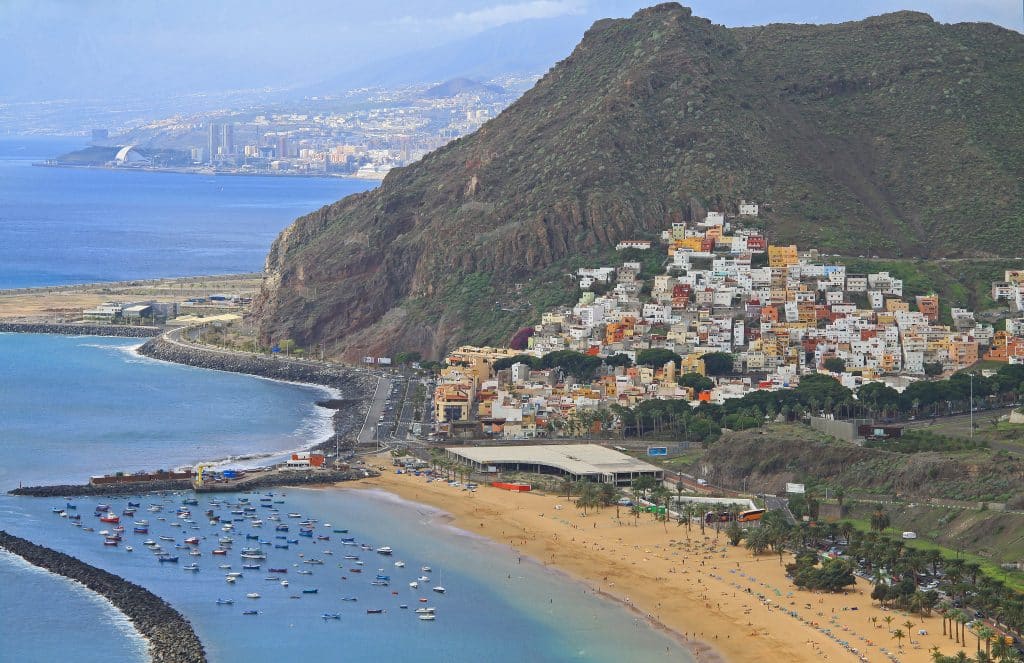How to Retire in Spain – check out this guide on how to retire in Spain.
If you are looking to invest as an expat or high-net-worth individual, which is what I specialize in, you can email me (advice@adamfayed.com) or use WhatsApp (+44-7393-450-837).
Introduction
Europe’s most sought-after retirement destinations include Spain thanks to the country’s sun, sea, sand, and laid-back way of life. You might even wonder why you didn’t retire earlier when you factor in the fantastic Spanish food and reasonably affordable real estate costs.
Who can retire in Spain?
EU Citizens
Since Spain is a member of the European Union, retiring in the country is fairly simple for EU citizens. You can live, work, retire, and study in Spain without a visa if you are an EU citizen.
Non-EU Citizens
Non-EU nationals can apply for two different types of visas: a long-stay visa called visado nacionale and a residence visa known as visado residencia.
Long-Stay Visa
You are given temporary residency in Spain with the long-stay visa, and it enables you to live, work, or study in the country. The long-stay visa is indefinite so you can renew it every year, although you must stay in Spain for a minimum of six consecutive months a year to do so.
Residence Visa
The majority of expats who desire to retire in Spain obtain this type of visa. Compared to a long-stay visa, it is simpler to get. You are given the option to retire or live in the country, but not to work.

Visa Requirements
The kind of visa you’re applying for will determine the requirements you need to comply with. However, it is important to first demonstrate your ability to live independently in Spain, that is, show evidence of a minimum monthly income of 2,130 euros (US$2,173). You will furthermore need to provide proof that you earn about 532.5 euros more per month for every dependent. Otherwise, you could demonstrate savings amounting to 27,600 euros for each renewal cycle that is equivalent to a year.
A list of prerequisites and required documentation should always be confirmed with your local consulate. These are the usual documents you’ll be required to present or submit:
- Passport that’s valid for a minimum of one year
- Evidence of financial resources, which might include your bank statements, affidavit of support, scholarship, etc. (depending on the sort of visa you’re asking for).
- A clean criminal data, as evidenced by your police record
- Health insurance issued by an insurance company in Spain
- A doctor’s original medical certificate attesting to your freedom from drug addiction and mental illness as well as attesting that you don’t have any contagious infections.
Spain Golden Visa
The Spain Golden Visa program, which offers permanent residency in Spain, is a residency by investment program that could eventually result in a citizenship. It is popularly used by non-EU citizens.
Advantages of Spain Golden Visa
- The Golden Visa Spain program enables visa-free travel throughout the Schengen region.
- The Golden Visa may be used by your spouse and minor children. You may also include dependent children over the age of 18.
- To keep your Golden Visa valid, you just need to visit Spain once a year, unlike the other kinds of visas.
- Golden Visa holders who stay in Spain for 10 years can apply for citizenship in the country.
Qualifications for the Golden Visa
One of the following investments must be made in order to be eligible for a Golden Visa in Spain:
- Transfer capital worth 1 million euros to Spain.
- Make a 1 million euro investment in business expansion.
- Put 500,000 euros toward a real estate investment.
Pensions
It’s crucial to think about your pension alternatives if you intend to retire in Spain. You must have made payments into the Spanish social security system for at least 15 years in order to be eligible for the minimum state pension and contributions of at least 37 years in order to receive the full Spanish state pension.
In Spain, there are various options for supplemental pensions like private and occupational (at-work) pensions. Take note that private pensions are less common than in some other European nations.
When moving to Spain, you may be able to transfer your pension pot from your country of origin. However, this depends on whether that country has an agreement in place with Spain. There may also be tax implications you’ll need to consider first. Therefore, it’s worth seeking advice from your pension provider, or a financial advisor, about whether you’ll be able to transfer your pension from your home country to Spain.
You might be allowed to transfer your pension fund from your home country while relocating to Spain, depending on whether or not that country has a deal in place with Spain. You may also need to take tax effects into account beforehand. In order to determine if you will be allowed to transfer your pension from your native country to Spain, it is wise to consult your pension provider.
The Qualifying Recognized Overseas Pension Scheme (QROPS) is one such program that UK nationals who relocate overseas frequently use. You can combine your pensions into a single plan using programs like QROPS. This not only makes it simpler to handle your pension but also guards it against currency rate swings. The UK government declared that British nationals migrating to an EU country following Brexit can continue to receive their British state pension in the same manner as before the UK left the EU in 2021.
Taxes on Retirement
Any income withdrawn from your funds if you transfer your pension to Spain will be subject to Spanish taxation. If you are regarded as a resident for tax reasons, your pension income in the country will be taxed at the same rate as your employment income. The tax on pension income that non-residents will pay will be different based on the type of pension and whether their home country has a treaty in place with Spain.
If retirees sell their houses or enterprises back home, they might have to pay capital gains tax when they move to Spain. Your assets can be subject to a wealth tax as well. The wealth tax in Spain differs by region.
The tax laws in Spain will be different from those in your country of origin. For instance, accounts that are tax-efficient in your home nation could be taxed in Spain.
Cost of Living in Spain
Spain is frequently less expensive than other European nations.
A meal at an inexpensive restaurant is estimated to cost 11.73 euros, while a mid-range restaurant can charge 50 euros for a three-course meal for two, according to global cost of living data aggregator Numbeo.
Rental costs might vary greatly based on location, just like everywhere else in the world.
Renting a one-bedroom apartment within Spain’s city center costs about 733 euros per month and 603 euros outside that area. The costs for buying apartment within and outside the city center can reach 3,135 euros and 1,908 euros per square meter, respectively.
The overall cost of living in Spain for a family of four can reach an estimated average of 2,252 euros per month, while a single person can live off about 637 euros a month, both excluding rent.

Transportation
Spain boasts first-rate public transit. Madrid, Barcelona, Bilbao, and Valencia all have metro systems. These networks link diverse communities and neighborhoods to the city core.
Numerous local and intercity buses are also available. This guarantees that you’ll never run into an issue getting somewhere.
It might not be necessary to own a car in a large city like Barcelona or Madrid. In fact, parking in certain places can be extremely difficult to come by. However, if you want to live in a rural or suburban area, you might wish to have access to a car.
There are a few rules that every motorist needs to follow and the following items are considered must-haves in their vehicle:
- Two warning triangles
- Whole set of extra bulbs
- Fuses
- An extra wheel and the equipment needed to change it
- Jacket with high visibility
- An additional set of spectacles or contact lenses (if the driver needs them)
- License and automobile insurance
You might have to pay a fee if you are stopped by the police and don’t have any of the aforementioned items.
Medical Services in Spain for Retirees
Spain’s healthcare system is of the highest caliber and typically ensures that every resident has access to coverage. Private and public healthcare are both parts of the healthcare system. There are certain hospitals and clinics that provide both public and private healthcare.
Public Healthcare
Citizens and residents of Spain who pay into social security are often covered by public healthcare. Remember that you might have to travel a little to get to a state hospital if you reside in one of the Spanish islands. You must meet certain requirements in order to be eligible for public healthcare as an expat, such as:
- If you are a resident who works or is self-employed and contributes to social security,
- If you’re a resident in Spain and gets government assistance
- If you just got a divorce or a separation from a partner registered with social security
- If you are more than 65 years old and a legal resident of the nation
- If you receive a government pension
- If you are an EU citizen staying in the country for the meantime and are carrying a European Health Insurance Card
It may be necessary for you to get private health insurance if you do not have access to public healthcare.
Private Healthcare
Private healthcare in Spain is quite common among expats. Many expats choose to cover themselves to have access to broader and quicker treatment.
Luckily private healthcare insurance in the country is very affordable and can cost between €50-200 a month.
Expats living in Spain frequently use private healthcare. They decide to get insurance to gain access to more extensive and expedient medical care. The good news is that private health insurance in the country is inexpensive and can cost between 50 euros and 200 euros per month.
Pharmacies
It is quite easy to spot a pharmacy in Spain due to the green cross sign hanging outside of the establishment. Spain typically has pharmacies open from 9.30 a.m. to 2 p.m. and from 5 p.m. to 9:30 p.m. during Mondays through Fridays. Saturday hours are also 9.30 a.m. to 2 p.m. Information about a 24-hour pharmacy can be found on the windows or doors of other pharmacies if you need medicine right away.
Banking in Spain
Spain has both private and public banks in addition to several local cooperative and savings banks. The banking industry is regulated by the country’s central bank, Banco de España.
Opening a bank account in Spain is advised if you intend to retire there, as it will make your daily life a whole lot easier. If not, you’ll have to deal with credit card fees and fluctuating currency exchange rates. Paying your expenses via overseas banking can be quite expensive and even deplete your money.
Getting an NIE, or Número de Identificación de Extranjero, is the first step in opening a bank account in Spain.
The government issues foreign residents a number called an NIE. It’s necessary for several things, such as opening a bank account, setting up bills in your name, filing taxes, and more.
It’s not difficult to obtain an NIE number. The NIE charge, which is roughly 11 euros, must first be paid at a government bank. Then, you must visit the closest police station and present the following records to the officers there:
- NIE application form (available at the police station)
- Original passport valid for a minimum of one year
- Photocopy of passport
- Two copies of passport-sized colored photos
Do remember that there might not be English-speaking staff at the police station depending on where you live, so brace yourself and prepare your tongue – or just Google translate for that matter.
Opening a Bank Account
Once you have your NIE number, you can visit your preferred bank and open an account. Be prepared as well as the bank might not have a staff who can speak in English. Well, you can always phone the bank to schedule a meeting with an English-speaking staff prior to your onsite visit. As an alternative, you could ask an Espanyol-speaking friend to tag along to assist you with the transaction.
Documents Required
It’s usually a good idea to check with your bank to see what paperwork they need. Below are the typical requirements you need to present:
- Proof of identity
- Spanish foreigner identification number NIE
- Proof of address, such as a utility bill with your name on it
- Proof of employment status
Use a sworn translator to translate all of your paperwork into Spanish. Your account should be activated within one to five working days. You’ll then receive your cards and documents in the mail in a few weeks.
How to Retire in Spain: The Upsides and Downsides
While Spain is a wonderful place overall, there are highs and lows to everything. Here are a few benefits and drawbacks of retiring to Spain:
Pros
- The culture is warm and the locals are amiable
- Wonderful food that is recognized for its variety and taste
- Excellent beaches and warm weather all year long
- The cost of living is low in Spain vs other European nations
- Spain is a relaxed, leisurely country
- Superior living conditions, educational opportunities, and medical care
Cons
- Difficult bureaucratic structure
- Spanish, not English, is spoken as the primary language
- Tax laws may not always be in favor of expats
- The need to live in the country for a minimum of six months out of the year to meet residence requirements
Amount of Income You Need to Retire in Spain
On roughly $25,000 per year, it is certainly feasible to retire in comfort in Spain. This may drop to $20,000 per year, depending on where you reside and your way of life.

Part of Spain With the Best Climate
The Canary Islands boast the most pleasant weather all year round. They experience moderate winters and mild summers with temperatures ranging from 20 to 27 degrees Celsius.
Popular Areas Where Most Expats Live in Spain
Majority of expats reside in Madrid and Barcelona. Marbella, the Costa Del Sol, and Alhaurín El Grande are among other areas that are popular with expats in Spain.
Best Places for Expats to Retire in Spain
Your choice of retirement lifestyle will have a big impact on where you should settle down in Spain. It’s crucial to consider your wants and needs before moving forward. Examine the advantages and disadvantages of a location, such as the ones outlined above, before making a decision. Always take your time. After all, Spain is a sizable nation with a wide range of alternatives.
Below is a list of the best places to retire in Spain according to international property organization Spot Blue:
- Alicante: This well-known Costa Blanca city enjoys up to 320 days of sunshine each year, as well as lovely beaches, a vibrant nightlife, and a wide variety of stores and leisure options.
- Javea: With a traditional, laid-back vibe, a little cooler climate, and a large English-speaking community, Javea is another Costa Blanca favorite.
- Malaga: This sprawling coastal city on the well-liked Costa del Sol has history, a thriving arts backdrop, fantastic beaches, and first-rate transit systems.
- Marbella: One of Spain’s most opulent cities, Marbella features restaurants, shops, and a blend of the contemporary and the traditional.
- Torrevieja: Famous retirement community in the province of Alicante, which enjoys a great climate and is popular with retirees from both Spain and overseas.
Pained by financial indecision? Want to invest with Adam?

Adam is an internationally recognised author on financial matters with over 830million answer views on Quora, a widely sold book on Amazon, and a contributor on Forbes.



